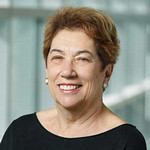Jewish Life Under a Caliphate
March 23, 2015
By Shulamit Reinharz
The country of Yemen is regularly in the news as radical Islamists overwhelm the existing government. Although this has been the fate of various countries lately, Yemen provides an instructive case for those of us interested in Jewish survival.
Scholars debate the exact origins of Jews in Yemen, but all agree that Jews have been a part of the Yemeni landscape since ancient times. Fast forward to the 20th century and what becomes important is that after World War I, when the British assumed control of the Middle East after the collapse of the Ottoman Empire, Yemen actually became two countries — the Northern Kingdom of Yemen and the British Protectorate of Aden.
The Northern Kingdom constituted a Caliphate, meaning that it was entirely under the rule of an Imam and was governed by Sharia law. The British section was a Protectorate governed by British law, which, among other things, enabled Jews to have travel documents, educate their daughters, and pursue modernization, while the Moslem population also adhered to Sharia law.
Given the current success of organizations such as ISIS in imposing their version of Islamic Law on the areas they have conquered, we can look at the conditions of Yemeni Jews in the Northern Kingdom to learn what life is like for Jews in a Caliphate. Various articles, such as "Persecution Defines Life for Yemen's Few Jews," have appeared lately in the New York Times describing the fate of Yemen's miniscule Jewish community.
A second vivid and accessible source about Jewish life in Yemen is available in Nomi Eve's recently published historical novel, Henna House, selected by several HBI Conversation groups in Florida for discussion with the author.
To make the last century's history (since 1918) of Yemenite Jews come alive, Nomi Eve creates the character of Adela Damari, whose life in the Northern Kingdom we follow from her pre-teen girlhood until she became a mature woman after immigrating to Israel on the Wings of Eagles. Also known as Operation Magic Carpet, this famous Zionist rescue mission secretly airlifted 49,000 Yemenite Jews to the State of Israel between June 1949 and September 1950 in 380 flights from Aden.
Living in the north, Adela never received formal education, but she learned to read surreptitiously when exposed to people engaged in henna practices. As a youngster, Adela was perpetually terrified because of a rule called "The Orphans’ Decree," an unevenly enforced law under the Caliphate that obligated the state to take under its protection and educate in Islamic ways any dhimmi (i.e., non-Muslim) child whose parents had died when he or she was a minor. Nomi Eve calls the man who abducts the orphans — the Confiscator.
First introduced or revived in the 17th century, the Orphans' Decree was ignored during Ottoman rule (1872–1918), but was observed during the rule of Imam Yahya (1918-48).
Although forced conversion is not widely recognized under Islamic laws, historian and Arabist Shelomo Dov Goitein believed that the forced conversion of orphans could have been justified by the revelation attributed to Muhammad that states: "Every person is born to the natural religion [Islam], and only his parents make a Jew or a Christian out of him."
Adela's father, a shoemaker, had severe respiratory illness, perhaps brought on by the Influenza Epidemic of 1918, the year Adela was born. The Confiscator made periodic visits to the shop to see how her father was faring, preparing to snatch her away. Fortunately, there was a loophole in the Orphans' Decree — married girls (and boys) were immune from the Confiscator. Thus to protect their children, Jewish parents married them off at a very young age.
Nomi Eve's book reveals much more about Jewish life as dhimmi (i.e., second-class minority citizens under Moslem law) under the Caliphate of the Kingdom of Northern Yemen, all of which serves to clarify the precarious position of the few Jews who live in Yemen today. Although some of the 100 or so Jews who remain in Yemen choose to stay regardless of opportunities to leave, Jewish activists from around the world should make it clear that Jews must not be subject to the laws of a Caliphate and must be allowed to leave if they wish. The Wings of Eagles must make one more rescue operation before it is too late.
 Shulamit Reinharz, founder and director of the Hadassah-Brandeis Institute, is the Jacob Potofsky Professor of Sociology and director of the Women’s Studies Research Center.
Shulamit Reinharz, founder and director of the Hadassah-Brandeis Institute, is the Jacob Potofsky Professor of Sociology and director of the Women’s Studies Research Center.